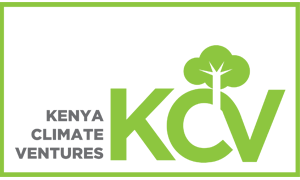Despite having limited access and control to management, conservation, exploitation and utilization of natural resources, women rely heavily on natural resources for food and sustenance, and have much information on the best way to manage these resources, thus making them to play a better stewardship role.
The role of women in modern society has and continues to evolve to include roles that are much broader than the caregiving and home management roles. Women are now actively involved in businesses, and in some sectors, women actually dominate and even hold top positions.
Drawing on a wealth of new, high-quality household and firm-level data from multiple countries, Profiting from Parity: Unlocking the Potential of Women’s Businesses in Africa shows that women entrepreneurs face constraints such as social norms, unequal legal frameworks, and differences in education, resources, assets and networks. These factors negatively influence decision making, hurting women’s business performance and stunting economic growth. While gender gaps vary widely, the report finds that on average, these constraints cause women entrepreneurs to have lower profits, fewer employees, and lower sales
With a portfolio that is 40% women-owned and 43% women-led, Kenya Climate Ventures is keen to continue supporting women in enterprise.
Women-led companies supported by KCV
Exotic EPZ, a company that is involved in the exportation of macadamia nuts is owned and run by women. The company has therefore contributed to 5 SDGs:
SDG 1: No Poverty- The company has provided their farmers with a sustainable market for their nuts. This ensures that the farmers have a ready market and are financially benefiting from the product.
SDG 5: Gender Equality- The company has supported participation of more women throughout the value chain.
SDG 8: Decent Work and Economic Growth- Exotic has created decent jobs to the employees as well as ensuring equal pay for work of equal value for all.
SDG 12: Responsible Consumption and Production- The company has ensured reduced waste generation through the principles of prevention, reduction, recycling and reuse along the process.
SDG 13: Climate Action- The company uses renewable energy solar plant, reducing its reliance on energy from the grid and effectively reducing the carbon footprint.
Dashcrop is a majority female owned company. For over seven years, the company has supported the food security goal as well as raising income hence contributing to our economic development. Based in Migori County, the company produces products which boost health and nutrition including natural, wholemeal gluten-free flours from grains such as sorghum, finger millet, amaranth and cassava grown by contracted smallholder farmers in the lake region in Kenya. The company has impacted different smallholder farmers in the region as well as providing them with quality seeds, agronomic support services and input financing given by partners like Kenya Climate Ventures.
Read also: The Gender Lens Within Kenya Climate Ventures Investment Process
Macefoods, another KCV investee, is also a female owned and led company that produces chillies and traditional vegetables for the local and international markets. The company sources and aggregates products from over 3,600 contract small-scale farmers in Western Kenya, Nyanza and Rift Valley and has created job opportunities for both women and youth.
Acacia Innovations manufactures and distributes Kuni Safi briquettes, a nearly smokeless firewood alternative made of sugarcane waste and Kuni Safi stoves. This majority female owned company has through this made strides towards contributing to SDG 7: Affordable and Clean Energy. Reduced deforestation is among the company’s impact missions, and which has contributed to SDG 13: Climate Action. According to the company’s report, each ton of their briquettes saves an average of 13 trees. Through the production of nearly smokeless Kuni Safi briquettes, the company is greatly contributing to the achievement of SDG 3: Good Health and Well-being. This firewood alternative reduces the risk of respiratory illnesses due to indoor air pollution such as pneumonia, lung cancer, strokes and heart diseases.
Botanic Treasures works with smallholder farmers to grow Moringa oleifera, a highly nutritious vegetable plant. The enterprise produces nutritional supplements and fortified foods that combat malnutrition and degenerative diseases, and support food security hence promoting SDG 2: Zero Hunger as well as SDG 3: Good Health and Well-being.
Sunken Limited provides innovative green energy solutions to small scale farmers, communities and enterprises through production and distribution of energy efficient cookstoves to the marginalized communities in Kakuma and Kalobeyei settlement areas. In addition, the company distributes solar water pumps to small scale farmers throughout Kenya. This directly contributes to SDG 7: Affordable and Clean Energy.
Read also: How Kenya Climate Ventures Prioritizes Youth in Sustainability Investments
Onja Uone farms, processes and distributes Macadamia nuts in the local and export market. Onja Uone works with smallholder farmers in Bungoma, Uasin Gishu, Trans Nzoia, Nandi, West Pokot, Elgeyo Marakwet, Busia, Kakamega, Vihiga, Kisumu, Kericho, Kisii, Narok, Homa Bay and Bomet. The company supports SDG 2: Zero Hunger and SDG 3: Good Health and Well-being.
KCV will continue to support women in enterprise through a multi pronged approach including facilitating women’s access to capital, supporting women to develop the right skill sets as well as sharing information with women in the form of apprenticeships and mentorship to induce women to cross over into higher-return, male-dominated sectors.












